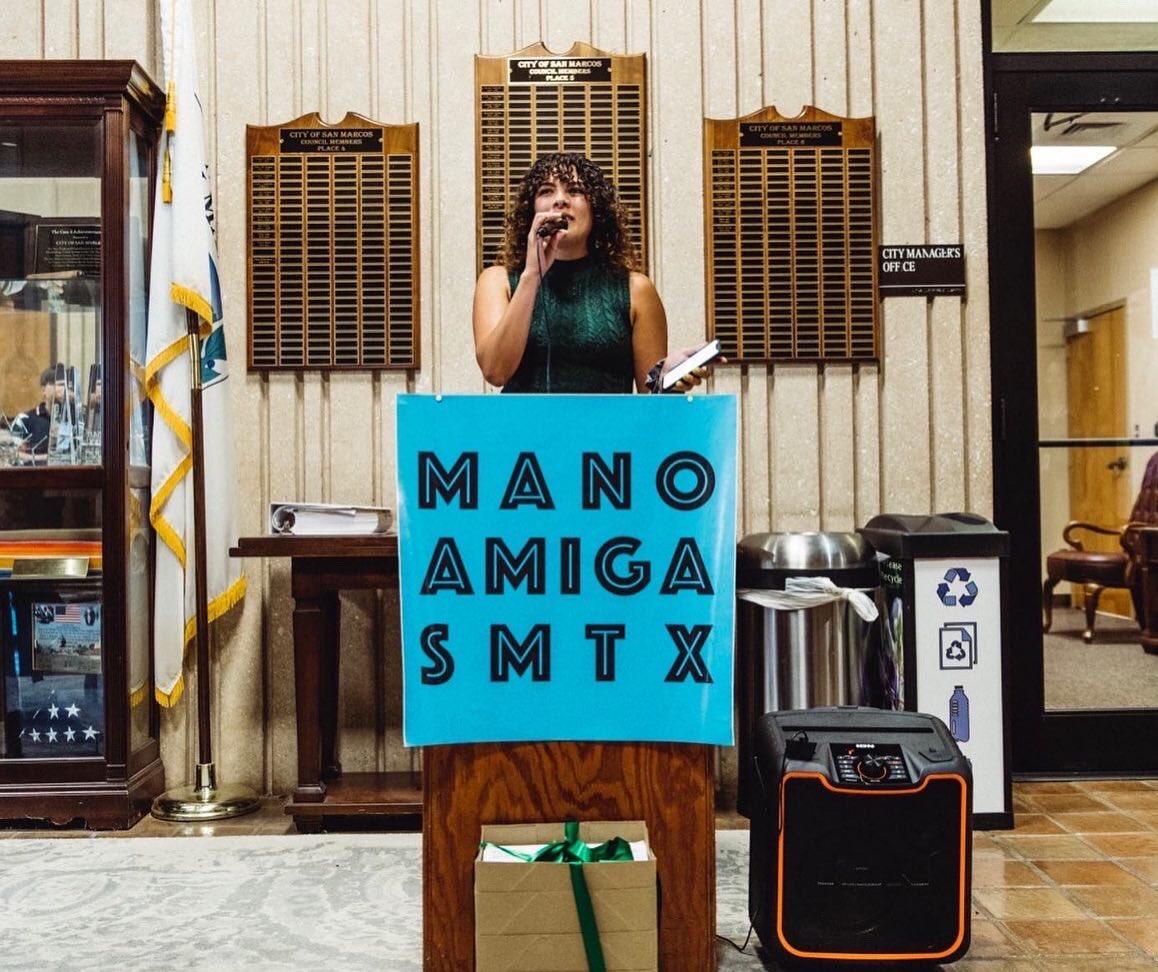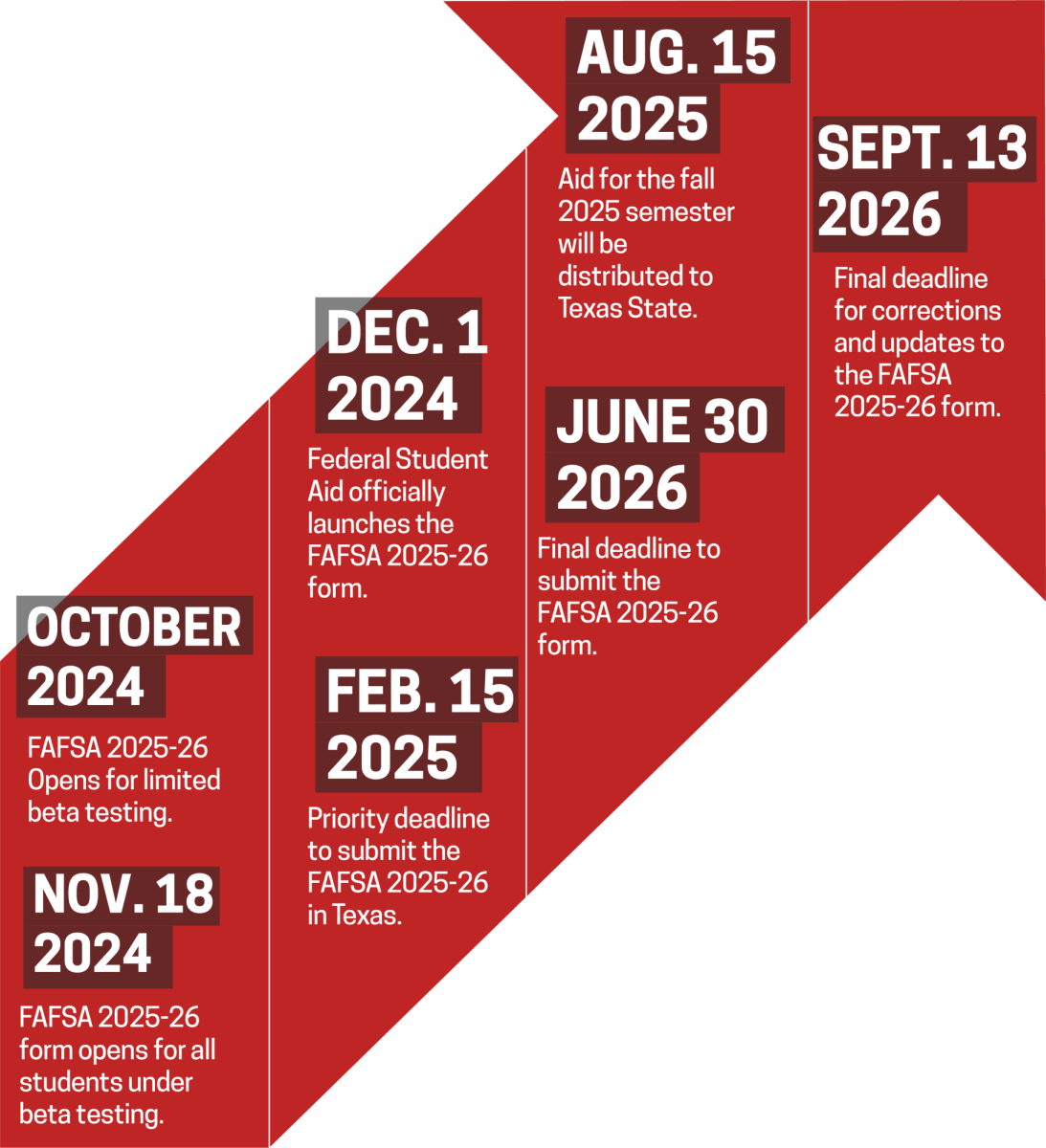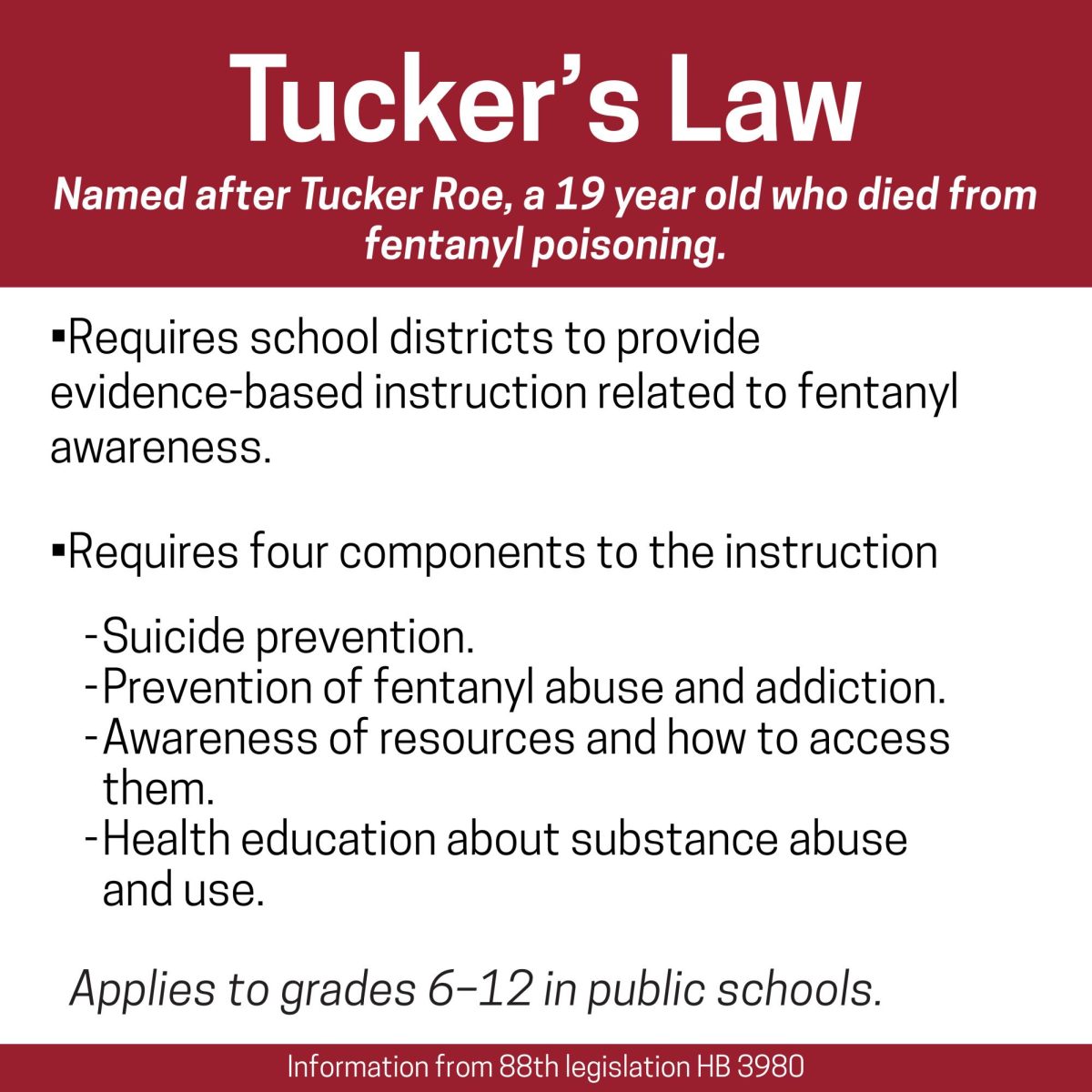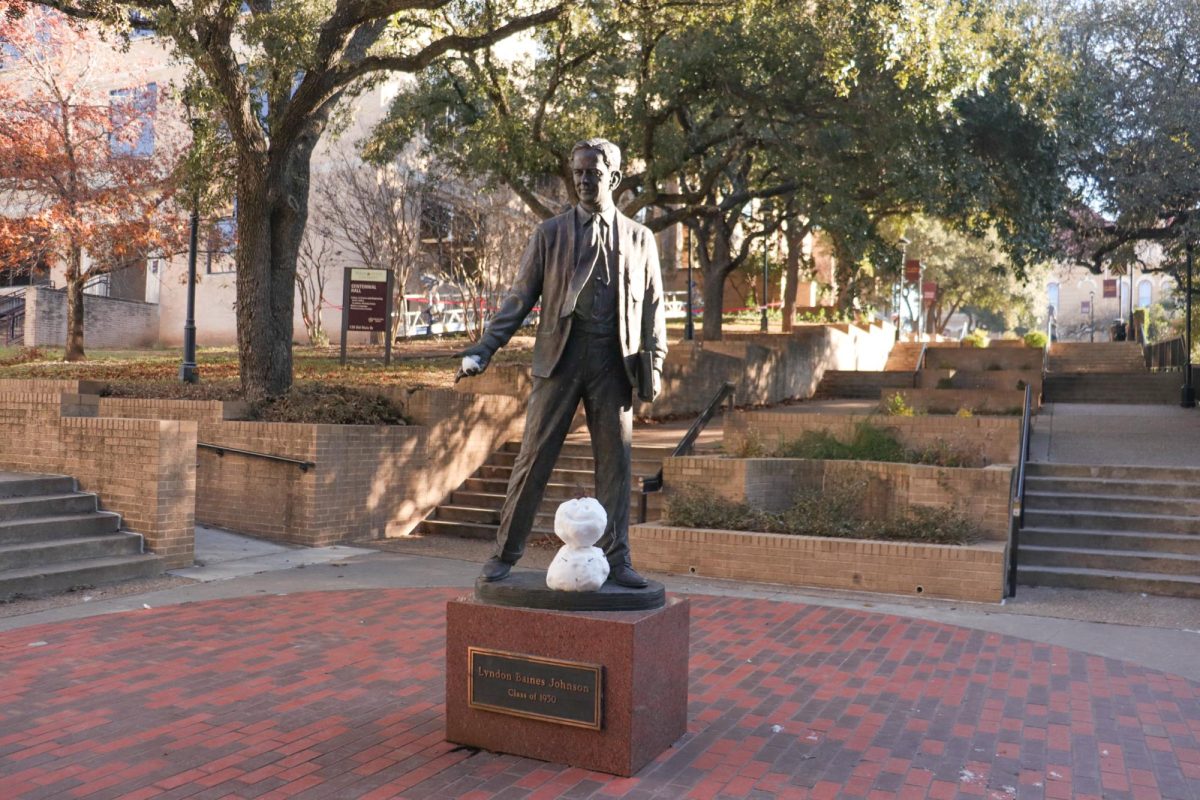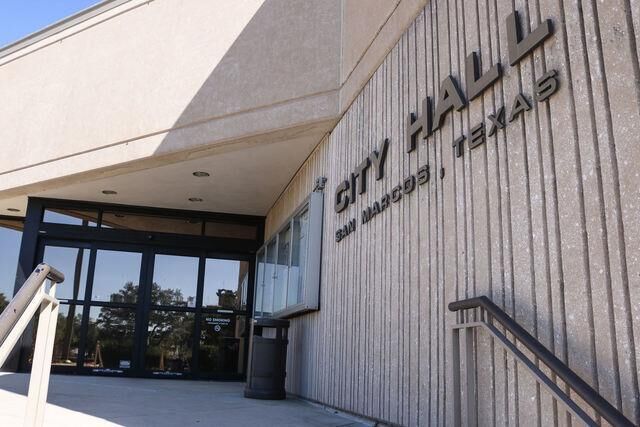Having presented more than the required number of valid signatures necessary to decriminalize marijuana in San Marcos, Mano Amiga hopes to improve the justice system by allowing citizens to vote one ordinance at a time.
During a press conference on March 1, Mano Amiga announced that 4,977 out of 11,256 signatures collected over the last several months had been verified in their campaign to decriminalize marijuana in San Marcos. While thousands of signatures are still unverified, the running count has already surpassed the required 10% of the number of registered voters in San Marcos.
Samantha Benavides, communications director at Mano Amiga, said this is what democracy is about.
“This is the biggest ballot initiative the city has ever seen,” Benavides said. “I hope that everyone feels inspired to continue working and organizing to transform our legal system because today is just another clear demonstration that when we organize, we win.”
The banning of marijuana in Texas dates back to 1915, originating in El Paso, Texas. Many who are passionate about the issue, Jordan Buckley, Lost River Film Fest festival director, believe these origins were inherently racist.
“Police were saying that marijuana was leading to crime and deceit in El Paso. But of course, you know, it’s largely fueled by racism; fear of Mexicans who had immigrated into Texas,” Buckley said.
When marijuana first began taking hold in Texas, it quickly became associated with Mexican immigrants, despite little evidence that immigrants were transporting or even using it. Buckley, along with other advocates and politicians such as El Paso native Beto O’Rourke, believes this first instance of marijuana criminalization in Texas was driven by racist, anti-Mexican anxieties. Still, the use of marijuana spread rapidly throughout the state, causing marijuana to be prohibited across all of Texas by 1923.
Since then, people of color have often been the targets of arrest when it comes to marijuana possession.
According to the 2017-2021 and 2022 Marijuana Possession Arrest Reports from the Texas National Organization for the Reform of Marijuana Laws, Black people encompass 30.2% of all possession arrests in Texas, while only encompassing 12.9% of the Texas population.
President of Texas State’s chapter of the NAACP Princely Kamanda said the signature count is a step in the right direction for the city of San Marcos.
“San Marcos is occupied by mostly minorities, so if they decriminalized marijuana, it’s going to have a positive influence on the minority population,” Kamanda said.
Beyond reducing racial discrepancies in the criminal justice system, students like Benjamin Cochran, an exercise and sports science sophomore, believe the decriminalization of marijuana will have positive impacts on all residents of San Marcos. Cochran said it will eliminate the number of people in jail for an unseemly crime while also creating the potential to help the economic future of the state.
“We wouldn’t have any petty crimes. People wouldn’t be getting jail sentences because they are smoking marijuana just at their house,” Cochran said. “Decriminalization would lead to legalization, and that would help the community, but also to help the state because they would be able to put a taxation on marijuana. It would also be a lot safer for the community.”
The current Texas State student handbook states that two infractions of a drug-related offense by a student will result in permanent expulsion. This would possibly change with the decriminalization of marijuana. However, students like Emily Nava, an economics junior, worry that decriminalizing marijuana or removing it from the handbook would play into the stereotype that Texas State is a party school.
“I feel like it would give us less of a strict look, which can be very bad for older generations looking down on Texas State, and we already are known as a party school,” Nava said. “So I feel like it could give us a negative reputation.”
However, Benavides accounts that even older generations have shown support and shared their stories with her while she was collecting signatures.
Benavides recalls a time she met a woman at the post office whose son was facing up to eight years in a different state for marijuana possession. The woman told Benavides that she was mailing a letter to her son’s judge and praying for a sign of hope when she ran into the organization advocating for decriminalization.
“I feel like, for every person who comes from a different time who is afraid of change, there is another person who sees this campaign as a beam of hope and change.” Benavides said. “There’s so many people who shared their stories with us and how they and their loved ones have been through the system who are just very moved and excited about this campaign.”
Now that the signatures have been submitted, the ordinance will be sent to City Council to either adopt it or send it to voters. While adopting the ordinance would be a quicker path to decriminalization, Mano Amiga is strongly urging council to send it to voters so they can participate in the democracy of this ordinance.
According to Benavides, the council cannot alter the wording of the ordinance.
“They cannot make any changes to the language. That’s the beauty of [using] these ballot initiatives rather than just trying to get council to do it,” Benavides said. “We decided to go via ballot initiatives so they cannot water it down. They’ll only be able to decipher the language that’s on the ballot, but not the language that’s on the ordinance.”
On top of its quest to decriminalize marijuana, Mano Amiga recently helped establish a local public defender’s office. In 2020, the grassroots organization advocated for and helped pass Texas’ first cite and release ordinance, and campaign members continue to advocate for police accountability. Still, Benavides believes more work needs to be done in San Marcos.
“We’re only just getting started,” Benavides said. “So please continue to stay involved with this. I’m really glad that so many young people have been brought into this and know what it feels like to win now, because there’s so much more work to be done here.”
To keep up with Mano Amiga and its campaign to decriminalize marijuana, visit its Facebook @ManoAmigaSM.
Categories:
Petition to decriminalize marijuana presented to City Council
Nichaela Shaheen, News Contributor
June 9, 2022
Mano Amiga Communications Director Samantha Benavides speaks at City Hall after the organization presented a petition to decriminalize marijuana in San Marcos to City Council, Tuesday, June 2, 2022.
0
Donate to The University Star
Your donation will support the student journalists of Texas State University. Your contribution will allow us to purchase equipment and cover our annual website hosting costs.
More to Discover


